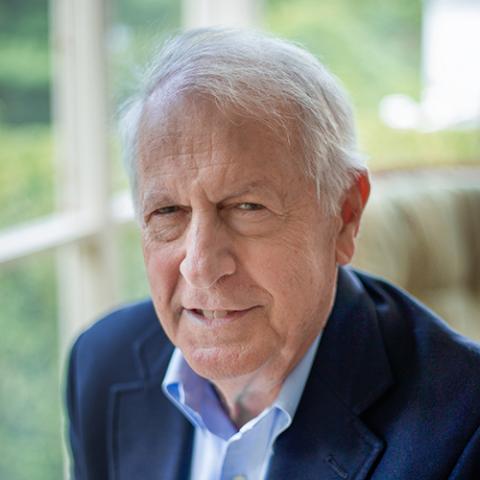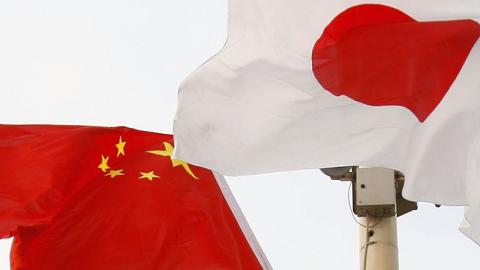In the first half of the last century, it was growing Japanese power and ambition that brought turmoil to the Western Pacific. The irony in this century is that the American-led alliance system in Asia, needed to peacefully manage a rising China, is greatly enhanced by the emergence of Japan's most nationalistic and confident leader since World War II.
Prime Minister Shinzo Abe is not in the mold of contemporary Japanese leaders who tread quietly in Asia. But he is what the region and the U.S. now need.
The problem with accommodating China is not so much the increase in the nation's economic and military might, but how Beijing seeks to wield great power. Despite its own rhetoric of a "peaceful rise," one has to ask why Beijing seems prepared to alienate every major maritime country in the region by making increasingly strident claims of sovereignty over large parts of the East and South China seas.
Why and to what end? Strategic logic and economic interest alone cannot account for Beijing's policies and behavior. It comes back to modern Chinese ambition, rooted in the Chinese Communist Party's self-serving historical construction of the country's role in Asia.
When the CCP under Mao Zedong took power in 1949, his immediate goal was to re-establish the "greater China" of the Ming (1368-1644) and Qing (1644-1912) dynasties, insisting the zenith of these two periods represented the permanent and enduring China. On assuming power, Mao seized territories lost after the collapse of the Qing dynasty, through the so-called peaceful liberation of the East Turkestan Republic (now Xinjiang) in 1949 and the invasion of Tibet in 1950. This promptly increased the size of his People's Republic of China by more than one-third.
Every leader since, including current President Xi Jinping, has carried forward Mao's vision of a greater China, revisiting history to expand dominion as the country's power grows. The CCP's concept of "greater China" now encompasses areas of the East China Sea administered by Japan and almost all of the South China Sea. Part of the justification for the former is that an unjust treaty was imposed on China after its defeat by Japan prior to the 20th century. For the latter, the argument is based on China's "historic waters" at the pinnacle of the Ming dynasty.
As selective history is used to vindicate claims, and claims become convictions, such selective history become the basis for both the party's sacred mission and a more strident foreign policy. Avenging historical slights and reclaiming territory is central to the CCP's contemporary political raison d'etre.
In propagating the narrative that the party is responsible for restoring the proper strategic and territorial order that has stood for millennia -- and ignoring the reality that the power and size of Chinese dynasties have expanded and contracted countless times over thousands of years -- compromise over these claims becomes increasingly difficult. Instead, making good on them becomes intrinsic to the party's domestic standing and legitimacy.
Maritime deterrence
Where does Chinese intransigence leave the U.S. and its allies, such as Japan? There are still good options. Because of authoritarian frailties, the CCP's standing with its own people is unchallenged but brittle. Because it relies on importing innovation and resources, and exporting goods to consumers in advanced economies, China needs the American-backed regional order more than it is prepared to admit. It cannot afford a foreign policy disaster in the form of a military defeat in the East or South China seas. It is in America's, and the region's, interest that China remains convinced that pushing the envelope in East Asia would indeed lead to such a disaster.
This increases the importance of a Japanese economic and strategic revival in Asia. Beijing is well aware that Japan, despite its self-imposed cap on defense spending, is the only Asian country large and powerful enough to balance China's strategic and military presence. Beijing also knows a strong Japan is critical to the credibility of America's system of security alliances and partnerships in Asia. In contrast, a weak or unwilling Japan would place too much of the security burden back on America and help hasten the demise of the post-World War II order in China's favor.
This is why Beijing rails against any change to the artificial strategic and military constraints Tokyo places on itself, seeking to prevent Japan from playing a strategic role befitting the world's third-largest economy. This occurs even as China's official military budget -- certainly understated -- has increased by almost 200% since 2003, while Japan's has decreased over the same period.
President Barack Obama's reaffirmation in April that the U.S. would use military force to resist unilateral attempts to undermine Japanese administration of the Senkaku Islands demonstrates a growing American appreciation of the regional alliance. The next step is to enthusiastically support the revision of Japan's prohibition against collective self-defense and give the country a broader role when the Guidelines for U.S.-Japan Defense Cooperation are revisited.
This will help the president convince the region, and more importantly China, that he genuinely welcomes the re-emergence of a confident Japan, and that Abe's second coming is seen as part of the solution rather than a problem.
















